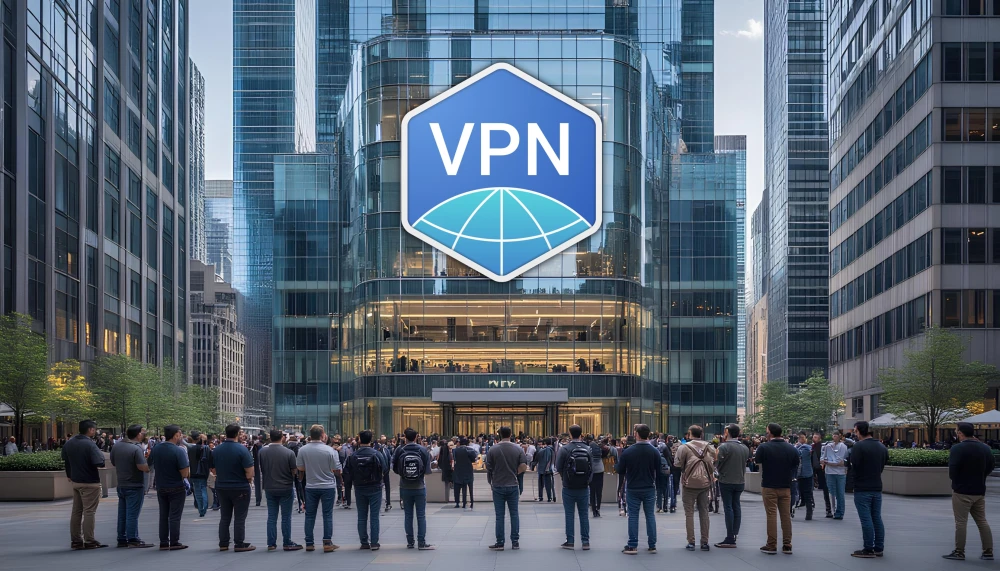Everything You Need to Know About VPNs: A Comprehensive Guide for Individuals and Businesses
11.07.2025

VPN (Virtual Private Network) is a modern tool designed to create a secure and reliable connection between a user and the internet. The core technology works by establishing a “tunnel” for encrypted data transmission, ensuring high levels of privacy, security, and anonymity. VPNs help users stay anonymous, minimize data interception risks, and maintain a stable connection—especially when dealing with sensitive or personal information.
Today, virtual networks are widely used—from personal browsing to corporate communication systems. They’ve become an essential part of digital hygiene, especially for privacy-conscious users.
Historical Overview of VPN Technology
VPN technology dates back to the 1990s, when major companies sought secure methods of data transfer over public networks. One of the first standards was the PPTP protocol, introduced by Microsoft. As the internet evolved and cyber threats increased, more advanced solutions emerged—such as L2TP/IPsec, OpenVPN, and later, WireGuard.
Today, VPN technology is actively evolving to meet modern demands for speed and security. Current solutions not only encrypt traffic but also ensure stable performance across a wide range of devices—including desktops, smartphones, tablets, smart TVs, and other smart gadgets.
Key Features and Benefits
Security and Privacy
The main goal of a VPN is to protect your data! Once connected, your entire internet traffic is routed through an encrypted channel, making it inaccessible to third parties such as ISPs, hackers, or malicious actors. This is especially important when transmitting personal info, passwords, banking data, or sensitive documents.
Additionally, a VPN masks your IP address, replacing it with the address of a remote server. This boosts your anonymity and reduces your digital footprint online.
Access to Geo-Restricted Content
While we avoid the term “bypassing blocks,” VPNs do offer expanded access to content that may vary by region. For instance, streaming services, gaming platforms, or online tools may show different results based on your IP address. By connecting through servers in other countries, VPNs unlock more versatile access.
Protection on Public Wi-Fi
Public hotspots—like those in cafés, airports, or hotels—pose serious risks due to their lack of encryption. A VPN acts like a digital “shield,” securing your connection and reducing the chance of man-in-the-middle attacks or data leaks.
Types of VPN Protocols

Tunneling (Túnpacking)
This term refers to the process of creating a secure communication channel between two endpoints. The mechanism encrypts your internet traffic, wraps it into a secure tunnel, and transmits it through a public network. This protects both the content and route of the data.
Common Protocols:
- PPTP — outdated but easy to set up; suitable when strong encryption is not required.
- SSTP — uses SSL; works well on Windows devices and offers decent security.
- SoftEther — flexible and cross-platform protocol with wide compatibility.
- IKEv2 — fast and stable, especially effective on mobile devices.
- L2TP/IPsec — combines ease of setup with a solid security level.
- OpenVPN — one of the most trusted and time-tested protocols, offering strong encryption.
- WireGuard — a modern, high-performance, minimalist protocol.
- Vmess and Vless — advanced protocols used in VPN systems like V2Ray, offering high-level traffic obfuscation and security.
How a VPN Works
VPN technology routes your traffic through remote servers located in another country or region, hiding your real location. Some providers support multihop—double or triple rerouting for added protection.
Both data and metadata are encrypted using advanced algorithms (AES-256, ChaCha20, etc.), making them unreadable to third parties.
Practical Use Cases of VPN
Individual Users
Use VPNs to protect personal data and ensure online privacy.
Business Applications
Allow remote employees to safely access corporate systems, especially when working from different locations.
Content Accessibility
VPNs let users change their virtual location, unlocking access to a wider range of websites, apps, and platforms.
Key Factors When Choosing a VPN Service
- Speed and Stability — essential for streaming, video conferencing, and gaming.
- Privacy Policy — look for providers with a strict no-logs policy and independent audits.
- Server Locations — more global coverage means more flexibility and better performance.
Potential Risks and Limitations
Data Logging
Not all providers are transparent—some may keep logs of your activity. Choose reputable services with clear, open privacy practices.
Security Risks from Improper Setup
Misconfigured VPNs can lead to IP leaks or full data exposure. Use official apps and avoid unverified tools.
Current Trends and the Future of VPNs
The industry is moving toward lighter, safer protocols like VLESS + Reality, adding features like multi-factor authentication and automatic disconnect (Kill Switch). VPNs are increasingly being integrated into routers to protect all smart devices at home.